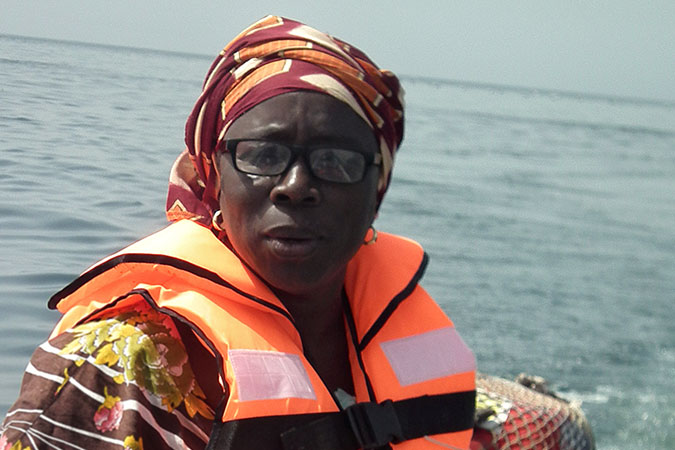From where I stand: “I became the first fisherwoman in my community”
Yayi Bayam Diouf became the first woman to fish in her small rural fishing village in Senegal. Paving the way for other women, she now runs a training centre for women where they can learn entrepreneurship skills and access support.Date:

![]()
After my son died crossing the Mediterranean Sea to reach Spain in search of decent work and a better life, I had no one left to support me. I come from a traditional fishing community in Thiaroue-sur-Mer. Here, men are the only ones who go to the sea and who make the important decisions.
They said I couldn’t fish because I was a woman and the fish wouldn’t take the bait from a menstruating woman. I told the men in my community that I was post-menopausal, so they should not be concerned.
After my son’s death, UN Women provided me with training in the fishing trade. I learned how to fish, make fish products and run a mussel farm. I became more confident about claiming my rights—including my right to fish! And, you know what—more women started fishing, following my example.
Together, we created a sea farm with mussels and even endangered species. I also set up a training centre for women in my community, in particular, survivors of violence, where they could learn new skills and access support.
As a result, our incomes have improved and we have diversified our products. New jobs have been created by including diving. Today, we are preserving the environment through better resource management, while reducing poverty and improving food security in our community.”
Yayi Bayam Diouf, 68, runs a training centre for fisherwomen in the village of Thiaroue-sur-Mer, near Dakar, Senegal. Since participating in a series of entrepreneurship and leadership trainings provided by UN Women, Diouf broke through a glass ceiling and became the first woman fisherwoman in her village. And then she went on to help other women secure livelihood through sustainable fishing and fish farming. Her story reflects Sustainable Development Goal (SDG) 8, which promotes inclusive and sustainable economic growth, full and productive employment and decent work for all, as well as SDG 14, which supports actions to conserve and sustainably use the oceans, seas and marine resources for sustainable development.
Read more stories in the “From where I stand...” editorial series.